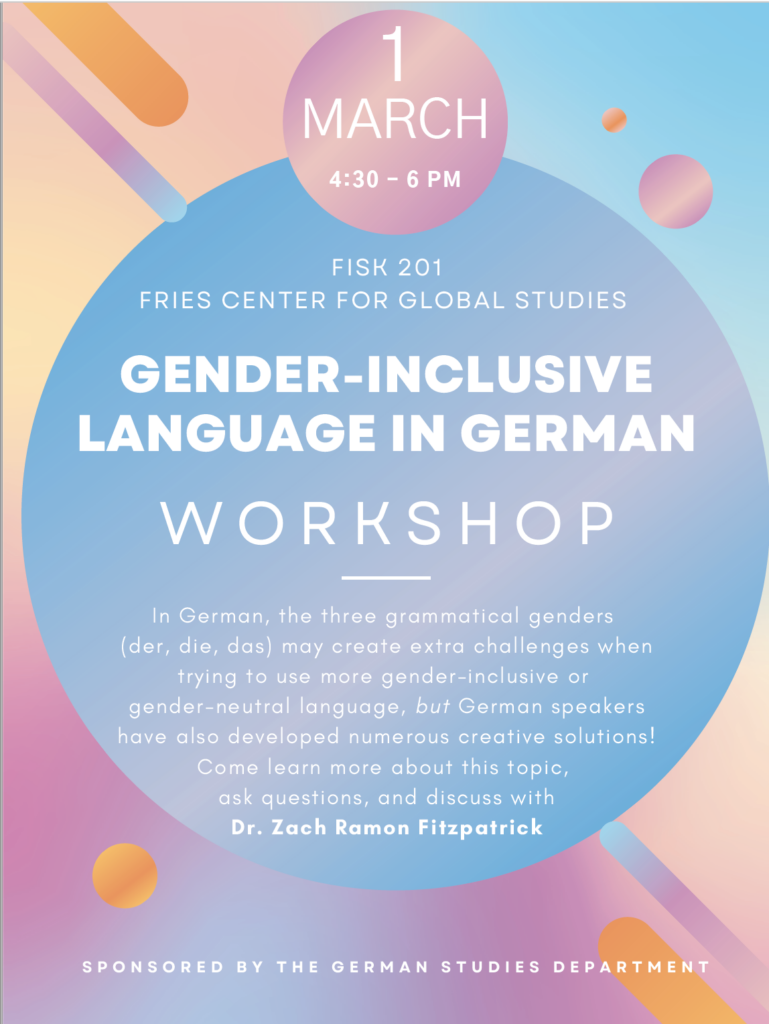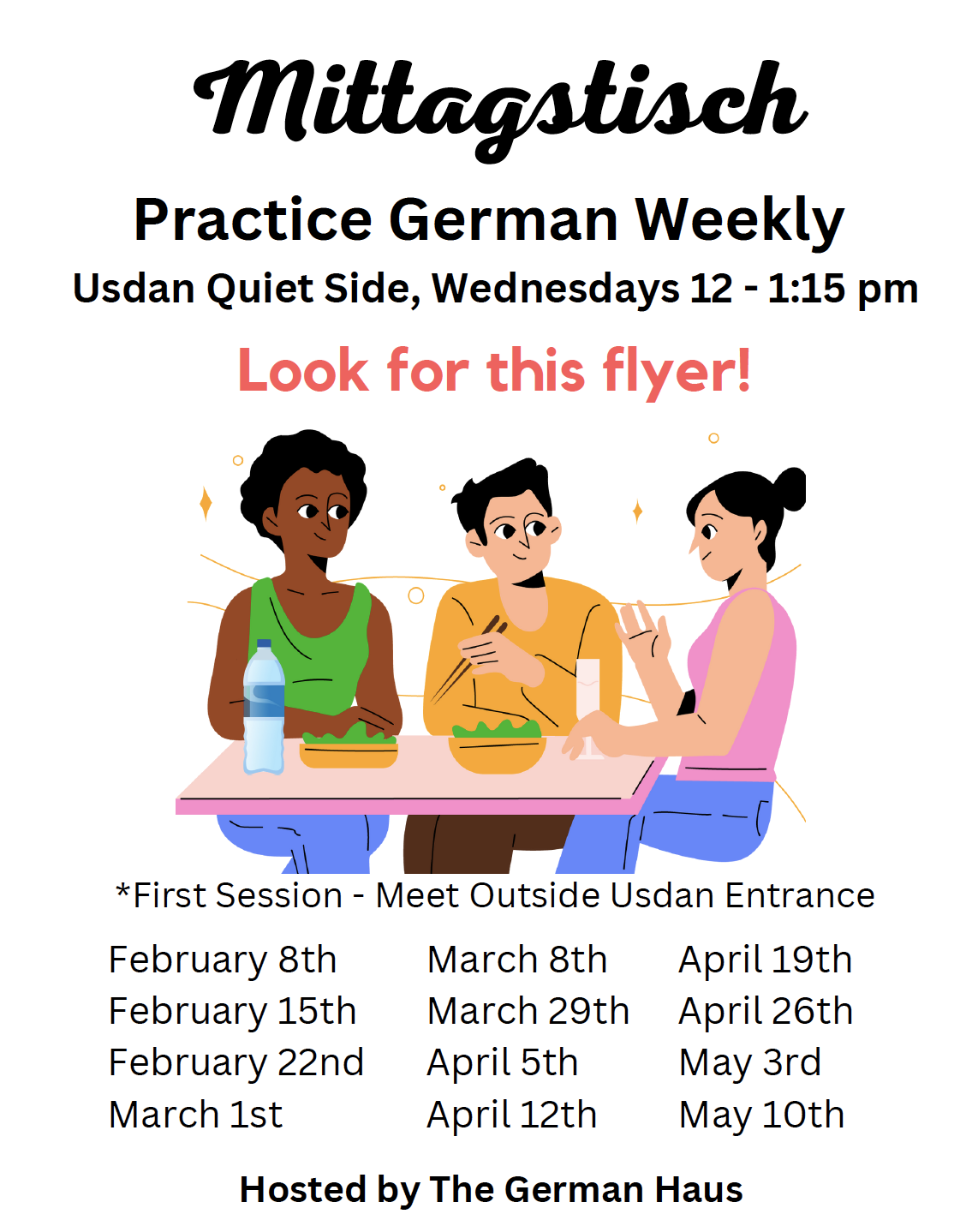
Events
Asian German Film Series
These contemporary German productions represent diasporic characters of Central, West, South, Southeast, and East Asian descent in a variety of genres and intersecting themes including stereotypes, gender, generation, mixed race identity, class, disability, and more.

Trailers
(1) Get Up (Steh auf!), a 2019 short drama, directed by Seung-Hyun Chong. Taeshik, a German-born 26-year-old of Korean descent is torn between his Korean upbringing and his life in Germany. (2) Fruits & Vegetables (Obst und Gemüse), a 2017 short comedy-drama by Vietnamese director Duc Ngo Ngoc. At first glance, the Vietnamese greengrocer and his employee, who is as attached to the Berlin soccer team FC Union as he is to alcohol, have little in common. At second glance…
Tschick (Goodbye Berlin), a 2016 coming of age film, directed by Fatih Akin, based on Wolfgang Herrndorf’s bestselling novel Tschick. The film depicts two teenage outsiders from Berlin who steal a car and go on an eccentric roadtrip through Germany that will probably change their lives.
My Blind Date with Life (Mein Blind Date mit dem Leben), a 2017 biopic, directed by Marc Rothemund, based on the autobiographical book by Saliya Kahawatte. An ambitious young man struggles to achieve his dream of becoming an employee in a Munich luxury hotel despite being strongly visually impaired.
Semi-Detached (Doppelhaushälfte), a 2022 German TV comedy series. A family moves from hip Berlin to a semi-detached house in the idyllic countryside and gets to know their very different neighbors…
Online German 101 Superintensive with the Goethe-Institut
- January 2-9: Preparatory asynchronous modules to be completed
- January 10-23: Mondays-Saturdays 10am-11:30am (Eastern Time)
- January 25: Final Exam
This 3-week superintensive online course allows students who were not able to attend GRST 101 this fall, to enroll in GRST 102 this spring. German 101 Superintensive is an introduction to German and leads to communicative competence in German by building on the four primary skills–speaking, listening, reading, and writing–while developing participants’ awareness of life and culture of German-speaking countries.
The German language opens vistas into a world of ideas that is as complex as it is elemental. It provides access to many fields, from philosophy to the natural sciences and many disciplines between: history, musicology, art history, and environmental studies. The course sequence 101/102/211 prepares students to study abroad in Germany, on one of the two Wesleyan-approved programs in Berlin and Hamburg or continue with GRST212 here at Wesleyan.
The cost of this non-credit course, offered by the Goethe-Institut – worldwide leader in German Language education – is $1350 but offered to all members of the Wesleyan community at a 20% discount. Registration is open through December 23 by emailing germancourses-boston@goethe.de. Learn more about the Goethe-Institut online. Students with additional questions are welcome to contact Professor Bork-Goldfield in Wesleyan’s German Studies Department.
Distinguished GRST and COL major Mark H. Gelber ’72 on China, Judaism, and Franz Kafka

Mark Gelber spent his academic career at the Ben-Gurion University of the Negev, retiring a few years ago. Before giving his talk at Wesleyan, Mark will deliver the keynote address at the University of Massachusetts-Amherst’s Nov. 15-16 international conference on Ruth Klüger, which he co-organized.
Martin Bäumel: Creating Attention: Poetry, Form, and the Observing Self, 1680-1750
October 17th @ 6pm at Daniel Family Commons
This talk explores the medial and communicative conditions of the (German) Enlightenment creation of the modern observing self, broadly defined as a self that encounters the world both rationally and sensually and has to account for the validity of its cognition without recourse to something outside itself. It contends that lyric poetry is at the forefront of attempts to practice and theorize this human world encounter. In an investigation spanning roughly the first half of the eighteenth century, it explores the connection between poetic speech and philosophical attempts to understand and evaluate processes of cognition as well as the incorporation of an observing self into a larger social whole. In particular, it shows how an increasing use of poetic mediality profoundly shapes what humans can pay attention to, and how they can account for the accuracy of an observation that can never be observed in the moment of cognition.
The German Haus invites you to
Please note that the party will take place on Friday, April 1, 2022.
German Movie Night – online
| February 25–27 Online |
 |
| Image: Joel Basman and Marie Leuenberger in Caged Birds |
| Oliver Rihs, Caged Birds (Switzerland/Germany, 2020, 119 min.) Barbara “Babs” Hug is a young radical lawyer fighting Switzerland’s antiquated prison system in the 1980s. She is tracked down by Walter Stürm, a Foucault-reading convict who has just managed to escape from prison – again. With the police closing in, Babs finds Walter temporary refuge with a militant organization, and takes him on as a client in hopes of using the Jailbreak King’s publicity to advance her cause. But the less Walter yields to her reasoning, the more Babs falls for his uncompromising idea of freedom. Based on a true story. Free streaming in the U.S. as part of our monthly German Movie Nights. Register to attend. |










